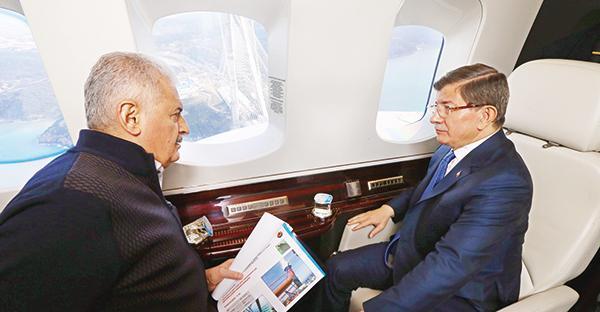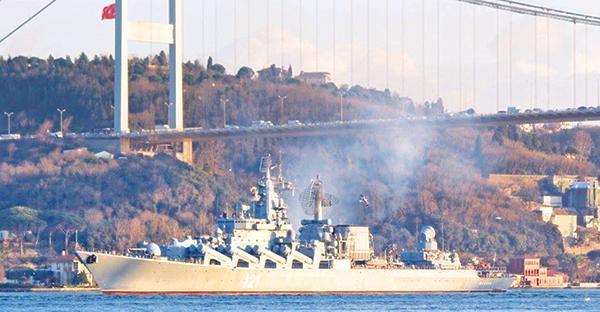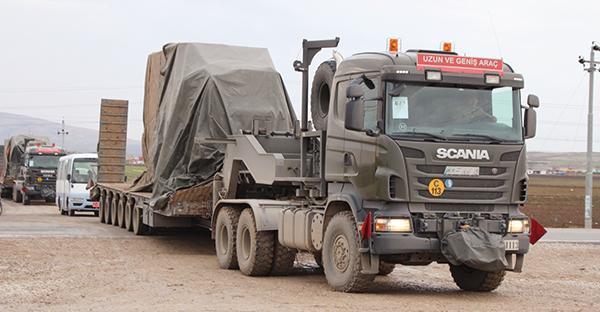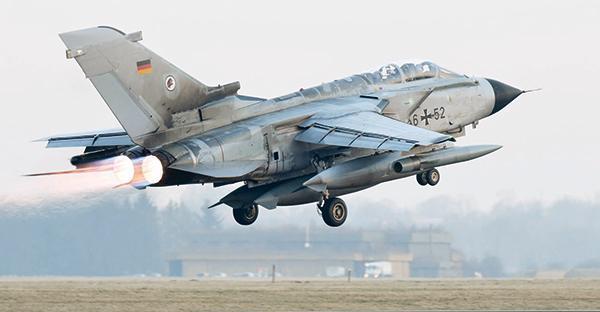The strategic outlook from the Turkish window

The Anadolu Agency photo below shows Turkish Prime Minister Ahmet Davutoğlu getting a briefing on Jan. 8 from Transportation Minister Binali Yıldırım aboard a helicopter regarding the ongoing construction work for the third “Yavuz Selim” bridge across the Bosphorus. Minutes later, Davutoğlu announced that the bridge, one of the largest of its kind with both road and railroad connections, would be completed by summer.

Minutes after Davutoğlu completed his observations of the construction, the Russian missile cruiser Moskva passed underneath the suspension cables of the uncompleted bridge on its way north to the Black Sea after completing its Mediterranean mission of more than 100 days to provide support to the Bashar al-Assad regime in Syria. The Moskva is the flagship of the Russian Black Sea fleet and was patrolling off the Syrian coast when a Turkish jet shot down a Russian jet for violating the border with Syria on Nov. 24, 2015. According to the 1936 Montreaux agreement, Turkey cannot stop Russia from using the Turkish straits as a conduit to supply arms and material for the Syrian regime, including new missile systems to be used against Turkey when needed, as promised by Russian President Vladimir Putin.

Answering reporters’ questions at the construction site, Davutoğlu said Turkish soldiers had rebuffed an attack by the Islamic State of Iraq and Levant (ISIL) near Bashiqa, north of Mosul in Iraq, killing 18 of them earlier in the day. He said that despite protests from the Iraqi government to withdraw all soldiers from its territory and repeated remarks by the U.S. administration, including President Barack Obama, the attack and the Turkish response showed why the Turkish presence there was necessary. Davutoğlu added that Turkey was actually there in order to protect the territorial integrity of Iraq against the presence of ISIL and the outlawed Kurdistan Workers’ Party (PKK) and would withdraw when Mosul is liberated from ISIL, which seized the Turkish Consulate in Mosul in June 2014, taking its diplomatic personnel hostage.

President Tayyip Erdoğan, on the other hand, accused Russia of causing the civil war in Syria to drag on by giving support to al-Assad by attacking the “moderate opposition” arrayed against him instead of ISIL. Erdoğan recently agreed with King Salman bin Abdulaziz of Saudi Arabia to establish a high-level strategic council to endorse an “Islamic Front” against terrorism, just three days before a major conflict erupted between Saudi Arabia and another Islamic theocracy, Iran, the former bearing the flag of Islam’s Sunni sect and the latter the Shiite flag. Relations between Turkey and Iran worsened with the rift, although the Davutoğlu government has sought to remain neutral for the time being.
The U.S. is seemingly unhappy with Turkey’s stance on a number of matters but the aspects that Turkey provides strategically as a member of NATO forces its allies to try to find middle ground with Ankara – as evidenced by the German war planes shown in the picture below, which were reported on Jan. 8 to have conducted their first sorties over Syria after taking off from Turkey’s İncirlik air base.

In the meantime, Davutoğlu is trying to find a way to complete the operations against the PKK in the east and southeast near Syria, Iraq and Iran before talks to reactivate relations with the European Union start in March. The clashes and operations supplemented by curfews in the regions in which the PKK wants to impose autonomy by arms have resulted in hundreds of killings, including civilians, with reports of heavy human rights violations. Ankara is worried about possible rulings by the European Court of Human Rights that could weaken Turkey’s position in discussions with the EU in the framework of a possible deal to stop Syrian refugees from piling up at the borders to EU countries. The picture is further complicated by the ongoing talks between the Turkish and Greek sides in Cyprus, which is of key importance in Turkey’s relations with the EU.
 The Anadolu Agency photo below shows Turkish Prime Minister Ahmet Davutoğlu getting a briefing on Jan. 8 from Transportation Minister Binali Yıldırım aboard a helicopter regarding the ongoing construction work for the third “Yavuz Selim” bridge across the Bosphorus. Minutes later, Davutoğlu announced that the bridge, one of the largest of its kind with both road and railroad connections, would be completed by summer.
The Anadolu Agency photo below shows Turkish Prime Minister Ahmet Davutoğlu getting a briefing on Jan. 8 from Transportation Minister Binali Yıldırım aboard a helicopter regarding the ongoing construction work for the third “Yavuz Selim” bridge across the Bosphorus. Minutes later, Davutoğlu announced that the bridge, one of the largest of its kind with both road and railroad connections, would be completed by summer.


